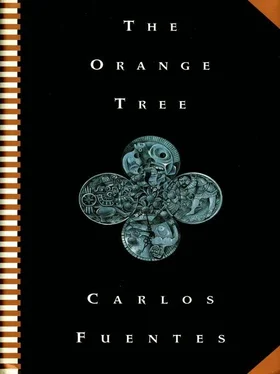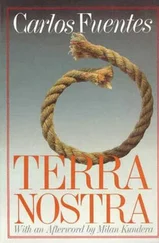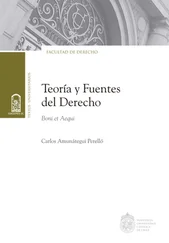Suddenly they all repel me. I try to close the curtain of my death over their vulgar film, their vile mess, so I can enter my own film again, the film Italy and Leonello Padovani gave me, far from my own messes made in California, near the Sea of Cortés … Padovani didn’t hide, in fact he exaggerated his status as aristocrat and homosexual. It was a splendid defiance of his heritage while fashionable at the same time. Member of the Communist Party, he would dare anybody to say that a person’s social origins determine his political participation. Not all rich people are reactionaries; not all workers are progressives. Sometimes the bourgeoisie carries out the revolution, while the poor support fascism …
Supremely knowledgeable about the female heart on the movie screen — Alida Valli, Silvana Mangano, Anna Magnani were brighter stars than ever when he directed them — he challenged every convention by understanding the souls of women without ever touching their bodies. They said he transposed and sublimated in his heroines his own sordid adventures with low-class masculine lovers, in whom he found, often to excess, the characteristics of sexiness and ingratitude, cheap self-interest and bestial passion. He treated me with the utmost respect. He was the first to see me and deal with me as a human being. With him, I dared to talk about things that were forbidden in Hollywood … How could I remember an Ireland I abandoned in childhood but that returned, violent and beautiful, perfumed and savage, to my dreams? Why, in my unconscious memory, did there appear so many tall reeds, so many hazel forests, so many silver trout and white butterflies which only fluttered around at night? Why so much dew drowned in dew? Did I know all that, did I remember it and live it only because I’d read Yeats?
“No.” Padovani smiled. “Perhaps you know it because before you read a poet you were one.”
I told him I was barely the Apollo of B movies, as my wife calls me.
“Apollo is light,” Padovani told me, he and I sitting in the solitary Lido in Venice one November afternoon. “He’s associated with prophecy, archery, medicine, and flocks. His sister is the Moon. Thanks to her, he triumphs over the deities of the dark night.
“I love Yeats’s poem where a man grows old and dreams about the soft look your eyes had once. He asks himself how many loved his moments of glad grace, how many loved his beauty with love false or true…”
Padovani’s eyes abandoned mine to look for a sign of life in the Venetian afternoon. He admitted that at times he felt lonely and missed the kind of company that all the caprices and all the glory in the world couldn’t get him. If I read Yeats, he knew Rilke well and recalled the verses about an Apollo with a shadowless gaze, a mouth that was mute because it had still not been useful for anything but had insinuated the first smile.
“Someone,” Padovani concluded, “is transmitting him his own song.”
Then the light reveals the stain of dry blood around my open fly. The women all look at each other. Suddenly they love each other, Oh sister, look we’re together in everything, just like we are on this boat, how are we ever going to be apart, guys? Sisters to the death, they hug each other, cry, remember — the man, the son, the parents — they share a past they invent in order to be sisters. Now they invent a future in which each one helps the others, things will be terrific because the first to make it will scatter her gold and share her success with the others, of course, of course …
Only two of us keep our distance while the tears swell, the hands are joined, the hugs go around, the tremors, the sweats.
Snow White, because she knows them all too well and simply, says, “Bunch of assholes.”
And I, I envy them because I don’t remember in my profession or my life a comparable fraternal experience.
What time is it?
The boat follows its own whims; it’s uncontrolled, and responds to the heavy seas we’ve encountered. The current drags us along like a magnet toward the Sea of Cortés, whose very name the women are ignorant of, but which I imagine transparent and sown with jewels: Didn’t the poor conquistador scatter all his wealth on the bottom of lakes and seas — Moctezuma’s gold in the swamps of the Sad Night when he fled Mexico City losing almost everything, the emeralds of the conquest in a naval battle at Algiers? What kind of treasure does an adventurer like that leave to his posterity, the conqueror of an empire equal to the sun? My sister the Moon answers me tonight, this dawn, this afternoon of a moon appeared out of time, I no longer know, but the Moon answers me that perhaps he leaves nothing more than the name of a sea, a testament of water, a fame of salt and wind. I’m dead, and I see only a gigantic, trembling spiderweb at the bottom of the sea.
The ketch luffs again, the prow rises and the jib boom hangs to one side, sinks and begins to drag the boat. There is no hand on the tiller; the amount of sail dragged by the boom overwhelms the tiller. We are adrift, and in that precise instant all appetites, memories, and fears fuse into one fearsome object, which is I myself. What remains of me understands and trembles in knowing it. I am to blame for the situation, guilty of having abused them, guilty of being an American, rich, famous, of being everything but what they don’t know, because I already said it, they know nothing about the stars and don’t know how to read the heavens or, for that matter, the compass. I am an actor, goddamn it, I’m a frustrated actor, doomed equally for habitual mediocrity and exceptional success. Yes, I’m guilty of many things, of my profession, my wife, my associates, my fellow workers, who are the people I remember. And suddenly, dead here and rotting under the Pacific sun, losing my features little by little but instantly, I think about the statues of Apollo that only count old age in terms of centuries and never count death. I try to save my responsibility by assimilating myself like the statues, joining with the poets and artists, embracing my vanished sister the Moon, draping over my temples the laurels of the names that are the princes of languages and vision: Yeats, Rilke, Padovani, Turner and the sea, Géricault and the raft of the Medusa, everything I learned in my childhood and didn’t find again until a certain afternoon on the Lido in Venice. But I am guilty about an Indian housemaid who stopped to look at me in the gardenia-filled pool with the bottles in her hand; I am guilty that a boy resembling me guided me to the garden illuminated by Chinese lanterns where I found these women. I am guilty for another boy I didn’t know who saved himself from death because an orange tree in bloom perfumed the bedroom where his mother screwed with men she didn’t know. I am, finally, guilty for a poor sixtyish gringa I offended by confusing her with my wife, Cindy, and slapping her in public …
In all of their eyes, I saw a time which disregarded my individuality. Above all, I saw those Mexican children and felt afraid of escaping from my own more or less protected individuality, constructed with a certain care and lots of patience so I could face a helpless humanity in which circumstances neither respect nor distinguish anyone.
I realized what had happened. In death, I had become a Mexican.
At noon
The coast guard boarded us amid the confused joy and fear of Snow White and her seven dwarfs. We’d reached Barra de Navidad, a good distance from the Sea of Cortés. Well, death is a disorienting experience. Excuse me. The nearest port was Manzanillo. The sailors covered their noses with handkerchiefs before coming aboard. The captain quickly inspected and quickly questioned them. “He died of a heart attack,” said Snow White. The girls said nothing. “So who castrated him?” asked the captain, pointing to my fly. “All of us,” shouted María de la Gracia. Dolores was about to shout, I was hungry. Snow White spoke up. “He was a pervert. He was a gringo. He tried to take advantage of my girls.” The coastguardsmen laughed at her. “All right then,” said Snow White. “I did it. I was hungry. Don’t you like to eat mountain oysters? That’s how you get started. But anyway, we’re Catholics and Mexicans.”
Читать дальше












